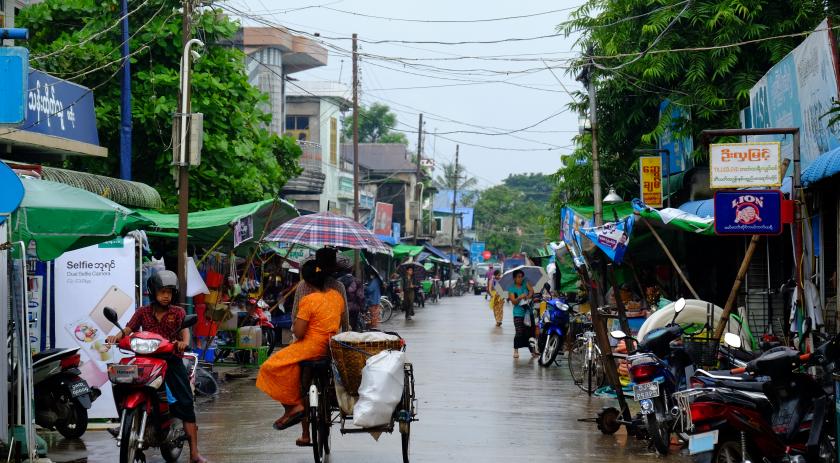
Ryan Russell has been in Myanmar for 9 years. He has started 3 businesses and helped dozens more find their way in Myanmar. Ryan is the CEO of Myanmar Business Answers and today he gives his best tips for hiring the right candidates in Myanmar.
Once you get past the paper part, you’ll have to interview the candidates. This also isn’t always so straight forward. They will often miss the interview or reschedule. If they do show up, they are often scared and give one-word answers.
But sometimes, you’ll find that diamond in the rough – the one shining star that will make your business a success. To help you in that journey, here are the Top 10 Things to look for when hiring Myanmar staff:
Using an agency
I’ve used agencies a number of times, to find both jobs and company employees. Honestly they are hit and miss. You can find a really good agency that sends you good candidates but often you have to do their job for them. They often send you whatever person is interested and so many times I’ve gotten people coming to interviews that didn’t qualify. When asking the person at the interview why they came, they said it was because the agency wanted them to practice interviewing skills.
I like to read through CVs ahead of time, and have my staff ask questions to the applicant before deciding on a proper interview.
Facebook and social media
Yes Facebook is a great place to find candidates. I receive many responses after posting job openings on Facebook, often within just a few hours. The platform allows for quick answers. Everyone in Myanmar is on Facebook and there are many different groups that are happy for recruiters to post job opportunities. LinkedIn is also very useful, and allows a more professional automatic application process. They can, of course, both be used together.
Education – is it important?
At this stage in Myanmar’s development I have to say no. I think in the future it will be very important but for now it’s not. Myanmar’s education system hasn’t changed enough and a University Degree here means very little. A degree from a private university might look good on a CV, but many of these institutions aren’t regulated and the quality of teaching and curricular is not guaranteed.
Experience
The job tasks and duties listed on CVs often differ from those that the applicant actually performed in their last job. I’ve read over many CVs where the job title and description was ‘accountant’, but the actual tasks performed were more like data entry or basic database management – non-essential tasks, or roles that could easily have been outsourced. In an interview in Myanmar, just like everywhere else, you’ll need to ask the candidate to explain the activities they performed.
Job hopping
Myanmar is the place for new job opportunities, so the pressure to retain quality staff is high. Valuable employees may have switched jobs many times, unless they really enjoyed working for a particular company. If they have worked for 3 different companies in 3 years, then they will most likely leave you after a year. When hiring be mindful of the applicants work history, and the amount of time and resources you’re willing to invest in them – particularly if you suspect they’re a flight risk.
Recommendations
It’s always good recruitment practice to make contact with referees, and to verify their recommendation letters and statements. If someone leaves their previous company on good terms, that’s a sign they may leave you on similar terms. Call that previous employer or referee, and ask them about the candidate. If the person providing the recommendation is the manager or company owner, that’s a good sign. If it’s a peer, that’s not so great.
Answering questions
Critical thinking is an important skill to bring to the workplace, and is often demonstrated in interviews. I’ve hired people just because they could answer questions properly, but I’ve also listened to many poor responses to what were very routine questions. Poor interview responses can be the result of the candidate not communicating properly, or it might also be a case of not thinking clearly. Pick critical thinkers and your business will do well. I always pick experience over education and critical thinking over experience. Critical thinking is king.
Probation
Depending on the position, a 2-3 month probation period is standard. If they don’t perform to your expectations, it’s fine to let them go at the end of the probation. Giving the new recruit projects with deadlines is a good way to test their abilities and time management skills. Do they communicate well? Put them in a team, and see how they interact with others.
The first week
When you hire someone, you should pay close attention to that person during the first week. If you don’t have a good onboarding program you should get one. Be sure to pair the new employee with a more experienced person in the company, and include them in lunches and social gatherings. Ensure that their tasks and duties are clearly defined, and encourage them to ask questions in case you have missed anything in the introductions.
The first year
If you can keep a mid-level staff for more than a year, then congratulations – you are a professional at managing employees in Myanmar! It is not uncommon for professionals to hop between dozens of companies when they are in their twenties, though this tends to stop as employees reach their thirties and instead seek career progression over short term experience. Remember that there are many opportunities for young talented employees in Myanmar, so bear in mind the age and work history of candidates when hiring.












